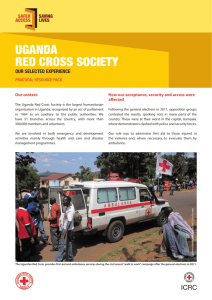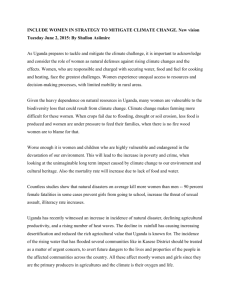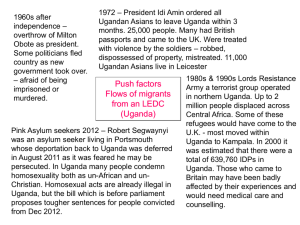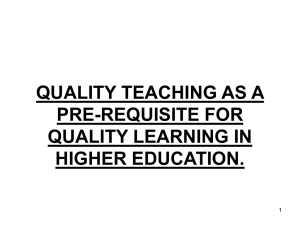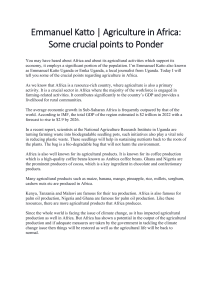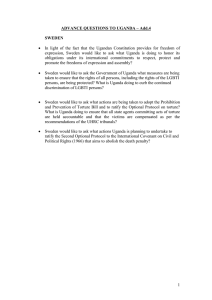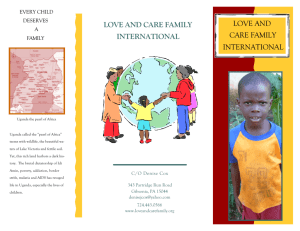Imagine being denied to earn a viable income simply because you
advertisement
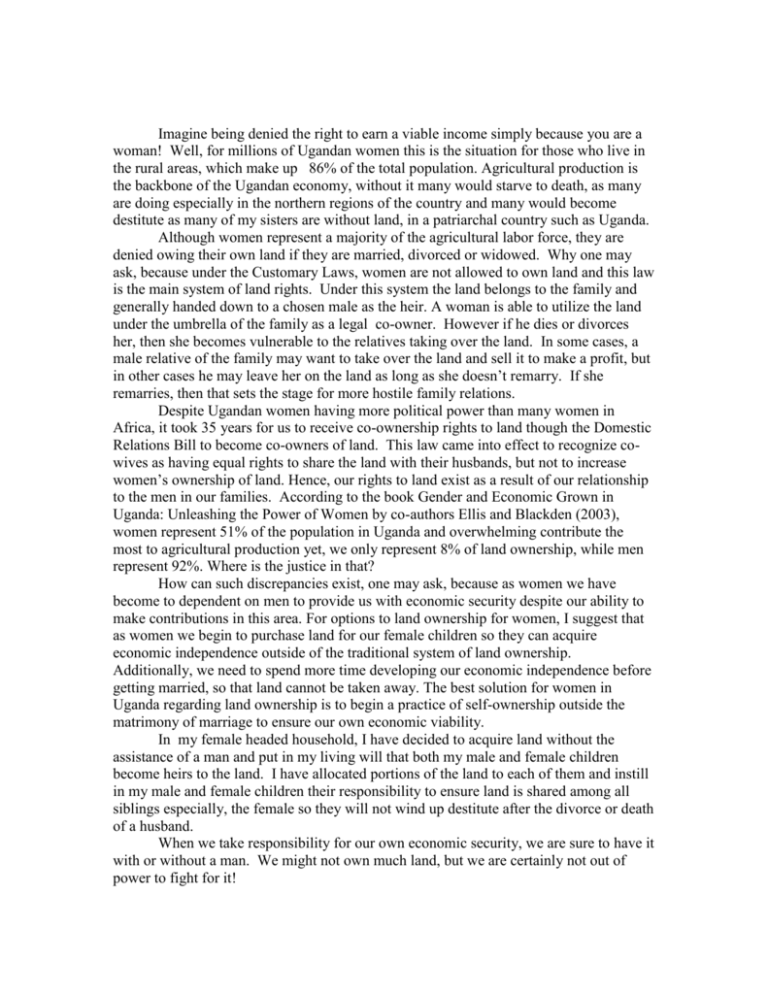
Imagine being denied the right to earn a viable income simply because you are a woman! Well, for millions of Ugandan women this is the situation for those who live in the rural areas, which make up 86% of the total population. Agricultural production is the backbone of the Ugandan economy, without it many would starve to death, as many are doing especially in the northern regions of the country and many would become destitute as many of my sisters are without land, in a patriarchal country such as Uganda. Although women represent a majority of the agricultural labor force, they are denied owing their own land if they are married, divorced or widowed. Why one may ask, because under the Customary Laws, women are not allowed to own land and this law is the main system of land rights. Under this system the land belongs to the family and generally handed down to a chosen male as the heir. A woman is able to utilize the land under the umbrella of the family as a legal co-owner. However if he dies or divorces her, then she becomes vulnerable to the relatives taking over the land. In some cases, a male relative of the family may want to take over the land and sell it to make a profit, but in other cases he may leave her on the land as long as she doesn’t remarry. If she remarries, then that sets the stage for more hostile family relations. Despite Ugandan women having more political power than many women in Africa, it took 35 years for us to receive co-ownership rights to land though the Domestic Relations Bill to become co-owners of land. This law came into effect to recognize cowives as having equal rights to share the land with their husbands, but not to increase women’s ownership of land. Hence, our rights to land exist as a result of our relationship to the men in our families. According to the book Gender and Economic Grown in Uganda: Unleashing the Power of Women by co-authors Ellis and Blackden (2003), women represent 51% of the population in Uganda and overwhelming contribute the most to agricultural production yet, we only represent 8% of land ownership, while men represent 92%. Where is the justice in that? How can such discrepancies exist, one may ask, because as women we have become to dependent on men to provide us with economic security despite our ability to make contributions in this area. For options to land ownership for women, I suggest that as women we begin to purchase land for our female children so they can acquire economic independence outside of the traditional system of land ownership. Additionally, we need to spend more time developing our economic independence before getting married, so that land cannot be taken away. The best solution for women in Uganda regarding land ownership is to begin a practice of self-ownership outside the matrimony of marriage to ensure our own economic viability. In my female headed household, I have decided to acquire land without the assistance of a man and put in my living will that both my male and female children become heirs to the land. I have allocated portions of the land to each of them and instill in my male and female children their responsibility to ensure land is shared among all siblings especially, the female so they will not wind up destitute after the divorce or death of a husband. When we take responsibility for our own economic security, we are sure to have it with or without a man. We might not own much land, but we are certainly not out of power to fight for it!
